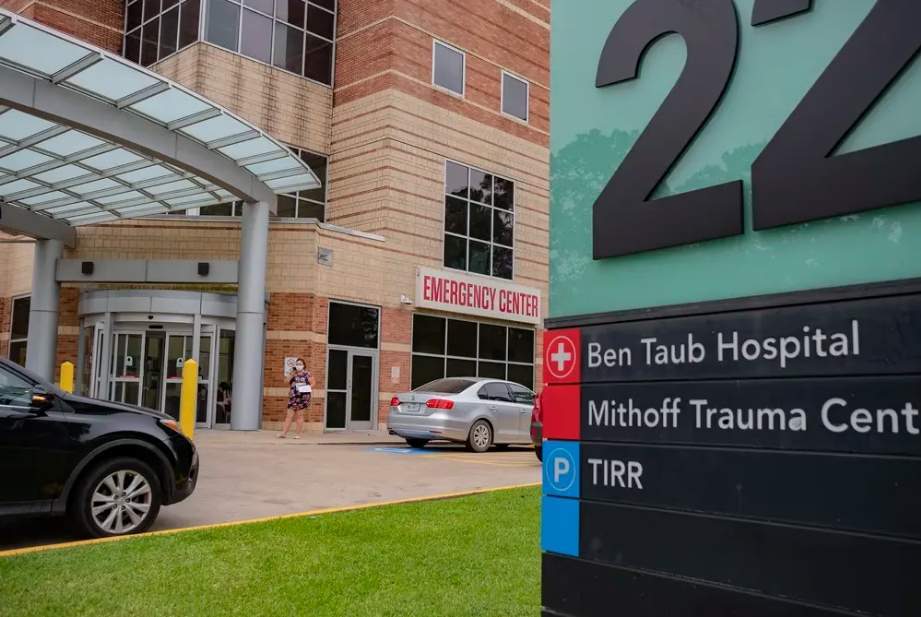As local officials express concerns that their hospitals could be overloaded with coronavirus patients, some are urging Gov. Greg Abbott to empower local governments to issue stay-at-home orders.
Local officials and experts in Austin, San Antonio, Houston and Fort Worth have expressed concerns in recent days that increasing coronavirus hospitalizations could overwhelm their intensive care capacities, with some saying it could happen in less than two weeks.
As Texas hit another record high Sunday, reporting 8,181 people hospitalized for the new coronavirus, local officials predicted cities could soon run out of space to care for the sickest patients. The state reported that there still are 13,307 available staffed hospital beds, including 1,203 available staffed ICU beds statewide, but hospital capacity varies greatly by region.
On Sunday, Austin Mayor Steve Adler told the Austin American-Statesman that hospitals there could be overwhelmedin the “next 10 days to two weeks” if the amount of people admitted because of the coronavirus continues to increase, adding that 434 out of 1,500 Austin-area hospital beds for coronavirus patients are occupied.
The San Antonio Express-News also reported that the city’s hospitals could be overrun with patients in the next week or two, noting that the number of hospitalized coronavirus patients in that area’s trauma service region rose by 55% in the past week.
The Fort Worth Star-Telegram reported Tuesday that Rajesh Nandy, an associate professor of biostatistics and epidemiology in the UNT Health Science Center’s School of Public Health, warned that Tarrant County hospitals could reach capacity in about three weeks.
As of Saturday, 10 of 12 hospitals in Texas’ Rio Grande Valley had already reached capacity as the number of people being hospitalized for the coronavirus more than doubled over the last two weeks.
Tenof Texas’ trauma service regions have more than 70% of their beds filled, with six of those regions reporting their beds are at least 80% filled, according to data from the Texas Department of State Health Services.
On Thursday, Gov. Greg Abbott ordered Texans in most counties to wear masks in public. The mandate warns people living in counties with more than 20 active coronavirus cases that first-time violators will face a warning while repeat offenders could face a $250 fine.
Adler and Harris County Judge Lina Hidalgo urged Abbott in television appearances Sunday to give cities the power to issue stay-at-home orders in order to fight the spread of the virus.
“What I’m being told is that there’s not the staffing to go along with the surge, and if this is happening in Austin, Dallas and Houston and San Antonio all at the same time, we’re in trouble,” Adler told CNN’s “State of the Union” Sunday.
Adler added that while he appreciates Abbott mandating the use of face masks, he believes the lack of a united messaging has put the state in danger and hopes the message “hasn’t come too late.”
Hidalgo expressed similar concerns on ABC’s “This Week.”
“As long as we’re doing as little as possible and hoping for the best, we’re always going to be chasing this thing. We’re always going to be behind, and the virus will always outrun us,” she said.
Disclosure: Steve Adler, a former Texas Tribune board chairman, and the UNT Health Science Center have been financial supporters of The Texas Tribune, a nonprofit, nonpartisan news organization that is funded in part by donations from members, foundations and corporate sponsors. Financial supporters play no role in the Tribune’s journalism. Find a complete list of them here.
“Several Texas cities worry hospitals may run out of beds in two weeks or sooner” was first published at https://www.texastribune.org/2020/07/05/texas-coronavirus-hospitals-houston-san-antonio-austin/ by The Texas Tribune. The Texas Tribune is proud to celebrate 10 years of exceptional journalism for an exceptional state.






























